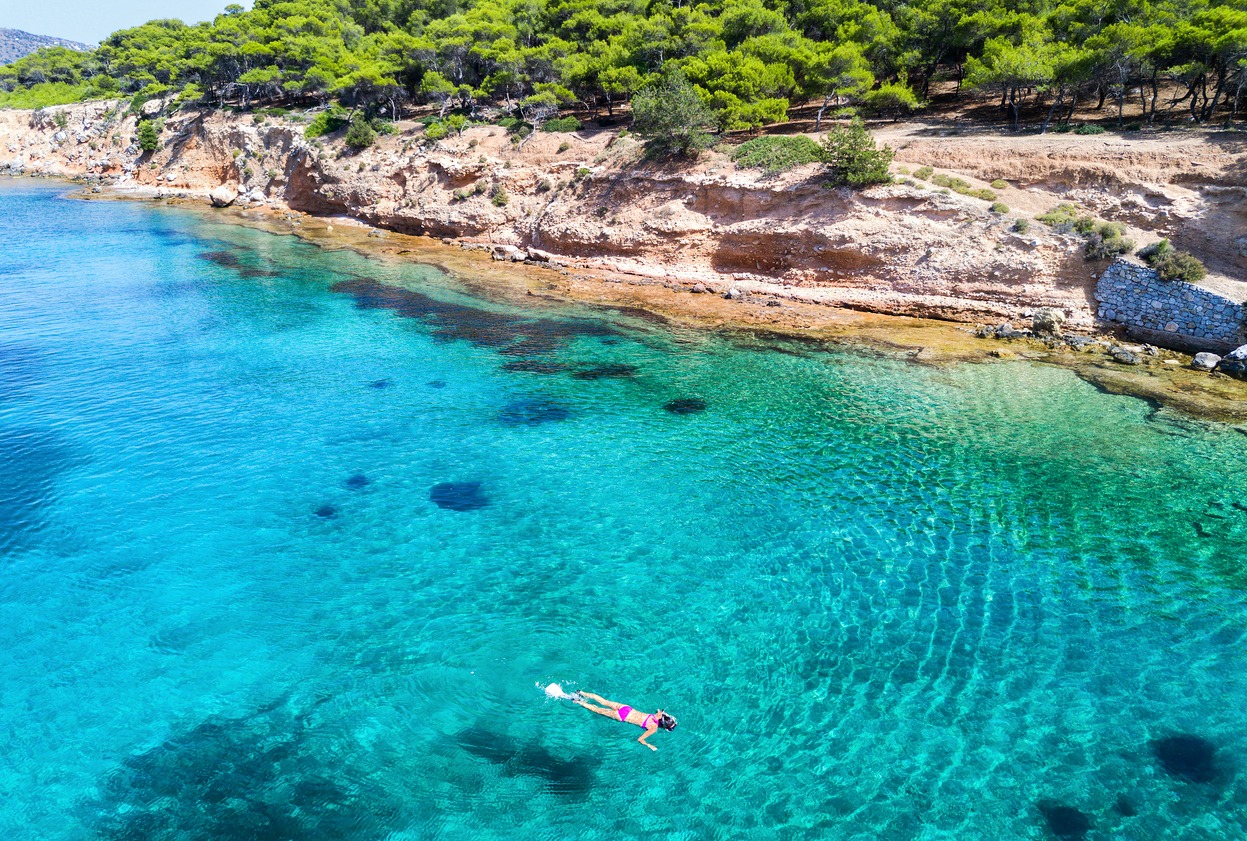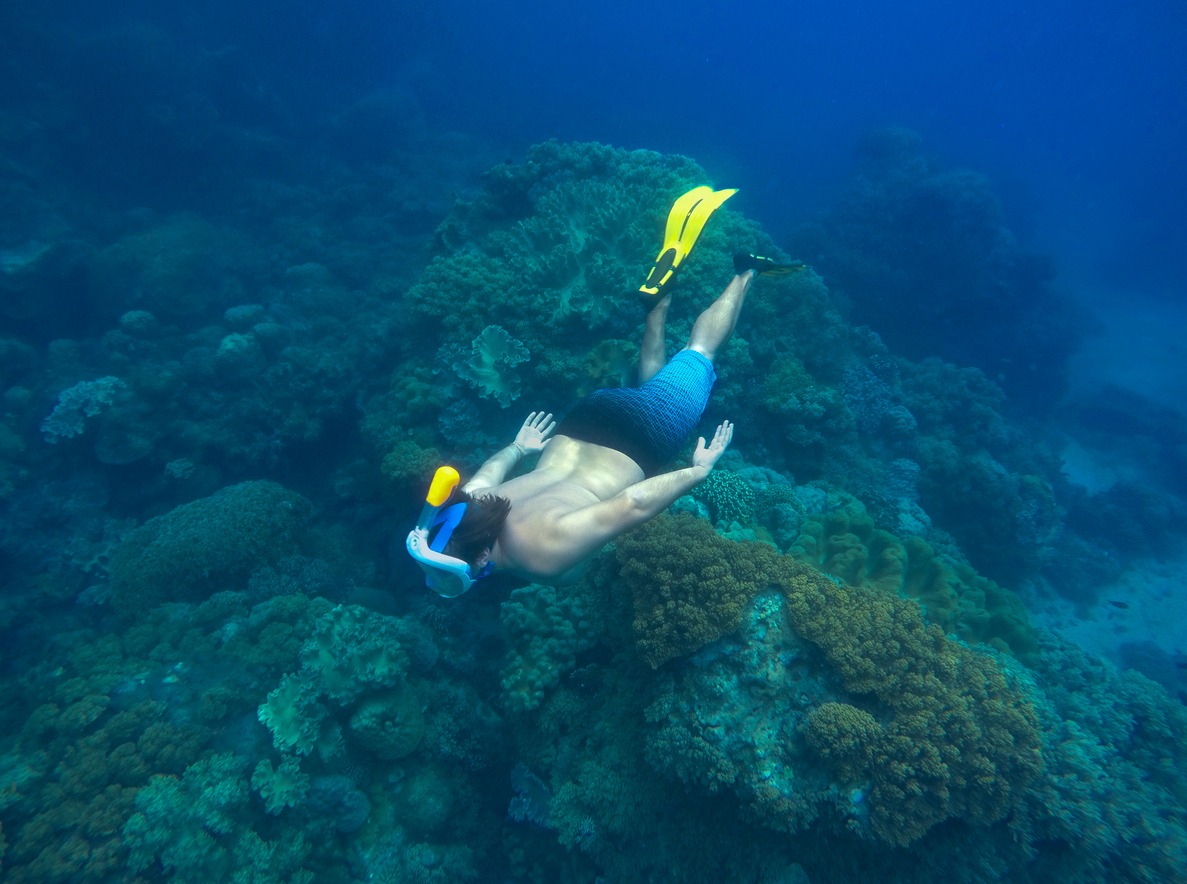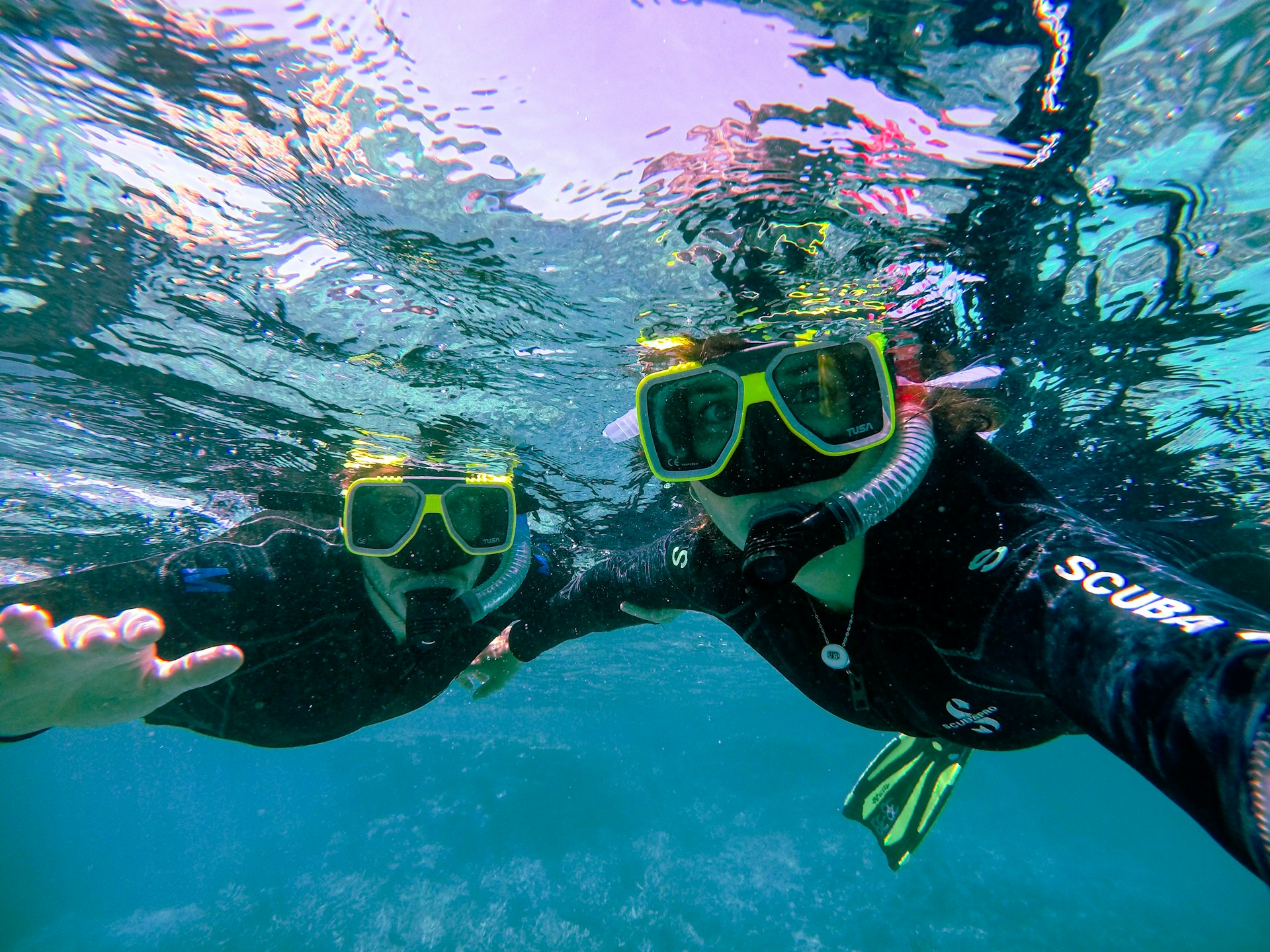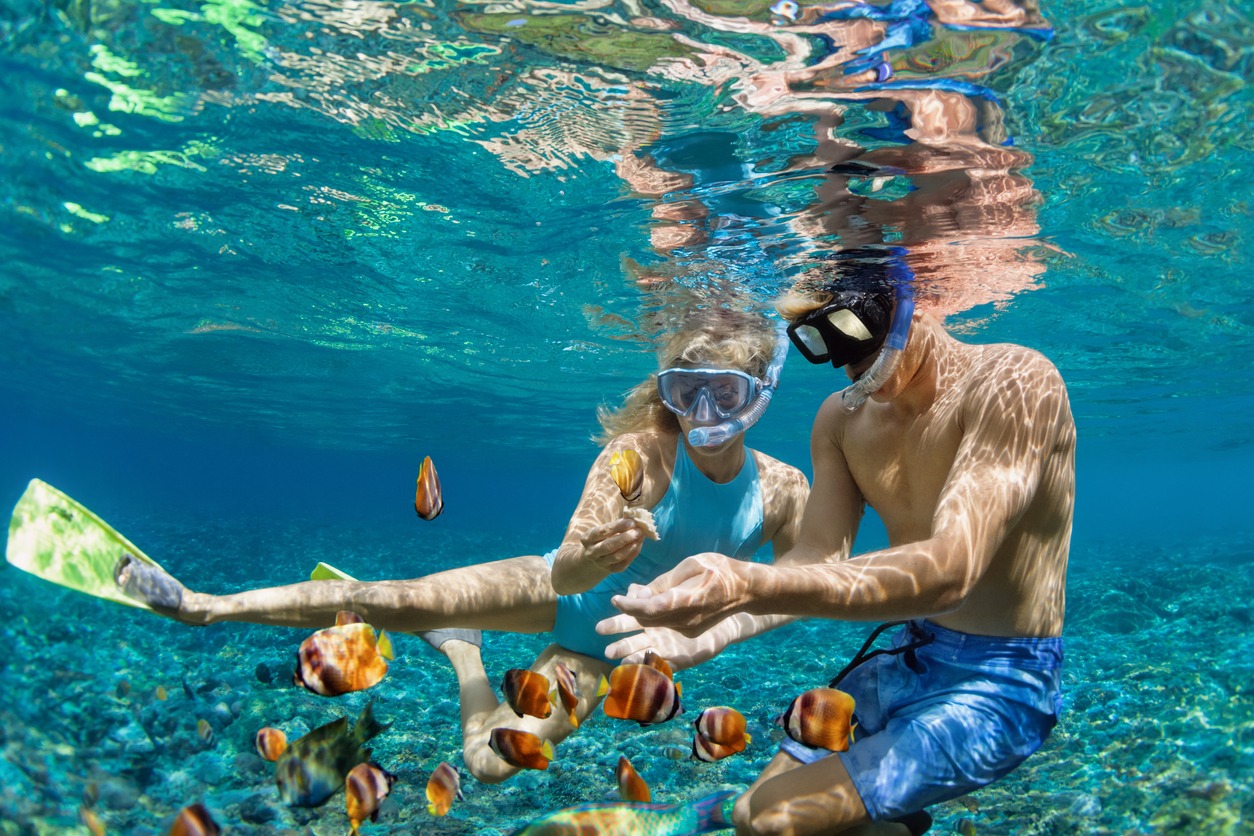Do You Need Training Before Snorkeling? A Beginner’s Guide
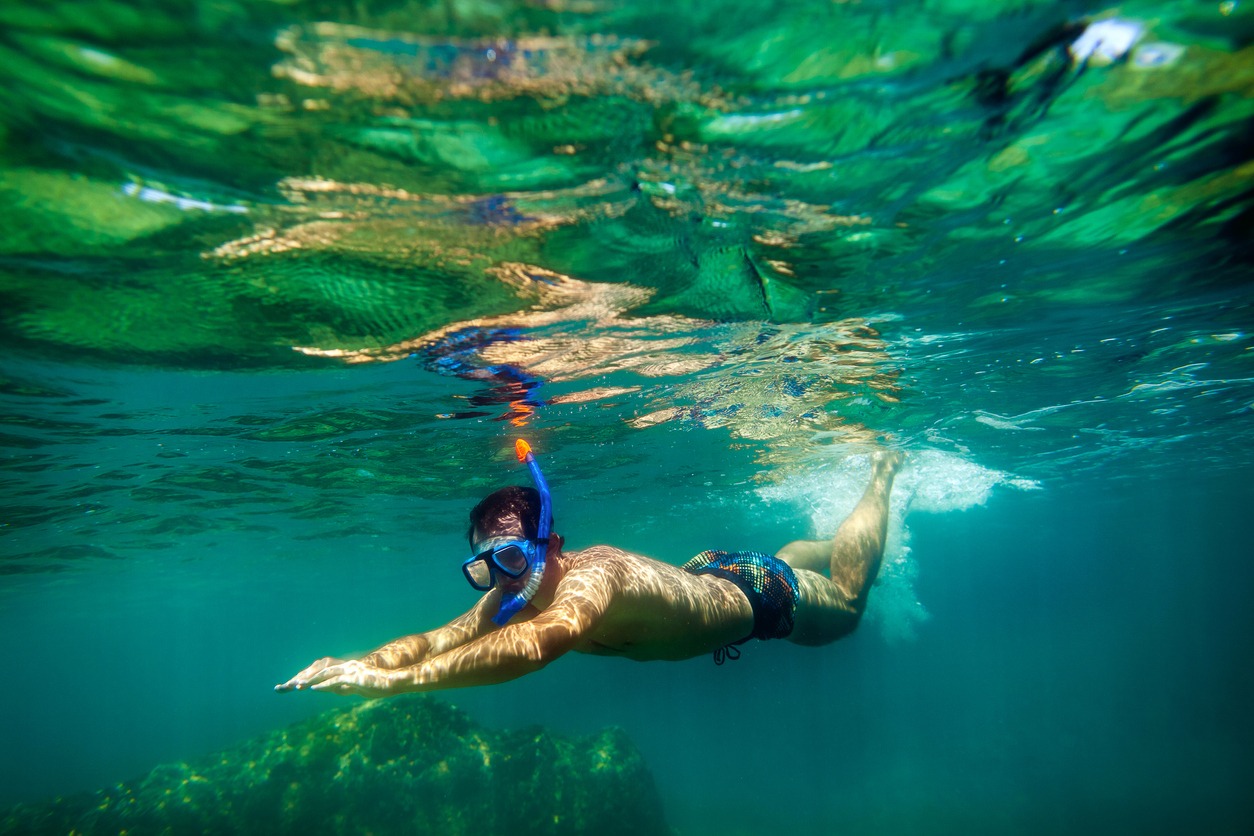
While formal training isn't required for snorkeling, it's vital to learn basic techniques and safety measures before diving in. You'll need to familiarize yourself with essential gear like masks, snorkels, and fins, ensuring they fit properly. Start by practicing in calm, shallow waters and always snorkel with a partner. Focus on honing breathing techniques and getting comfortable with your equipment. Choose beginner-friendly locations with clear visibility and minimal currents. Consider joining a guided tour for expert instruction and local wisdom. By following these tips and steadily improving your skills, you'll be well-prepared for an enjoyable underwater expedition.
Snorkeling Basics for First-Timers
Diving into the world of snorkeling can be an exhilarating expedition for newcomers. As you prepare for your underwater journey, it's necessary to understand the basics of this mesmerizing activity. Snorkeling allows you to observe marine life without extensive training, making it accessible for beginners.
Your primary equipment consists of a mask and snorkel, which should fit properly for comfort and safety. The mask creates an air pocket in front of your eyes, ensuring clear vision underwater. Your snorkel enables you to breathe while keeping your face submerged, maintaining good visibility of the aquatic environment. Importance of properly fitting mask to prevent leakage and fogging is vital for a comfortable and enjoyable snorkeling experience.
Before venturing into open water, practice snorkeling techniques in a controlled setting like a pool or calm beach. Learn to breathe steadily through your mouth and clear water from your snorkel. These skills will enhance your confidence and enrich your experience. Practicing with fins to build muscle strength and endurance can also help prepare you for the demands of snorkeling.
For added safety and guidance, consider snorkeling with a companion or joining a guided group. This approach provides an opportunity to learn from experienced snorkelers and ensures assistance is nearby if needed. Choose locations with calm, clear waters to maximize enjoyment and ease your introduction to this fascinating activity.
Essential Gear and Proper Fit
The backbone of a successful snorkeling expedition lies in having the right gear that fits properly. Your mask and snorkel are essential components. Make sure your mask has a silicone skirt for a good seal and comfortable wear. It's crucial to adjust the mask correctly to prevent water entering when your face is submerged. To test the fit, place the mask on your face without the strap and inhale slightly through your nose. If it stays put, you've got a good seal.
Your snorkel should have a comfortable mouthpiece and a purge valve to keep clear water out while you breathe easily. Well-fitting fins will help you move efficiently through the water, enhancing your overall experience. Don't forget a snorkeling vest for added buoyancy and safety. Today's snorkeling masks are much better than what was available in the past, and the market has seen innovations from startups and smaller companies, making snorkeling more appealing to new people.
To guarantee good visibility, apply an anti-fog solution to your mask. This will help you stay calm and enjoy the underwater sights without constantly clearing your mask. Remember, a good fit for your eyes and nose is essential for a comfortable and safe snorkeling journey. By investing time in selecting and properly fitting your gear, you'll set yourself up for an unforgettable underwater experience.
Safety Precautions and Techniques
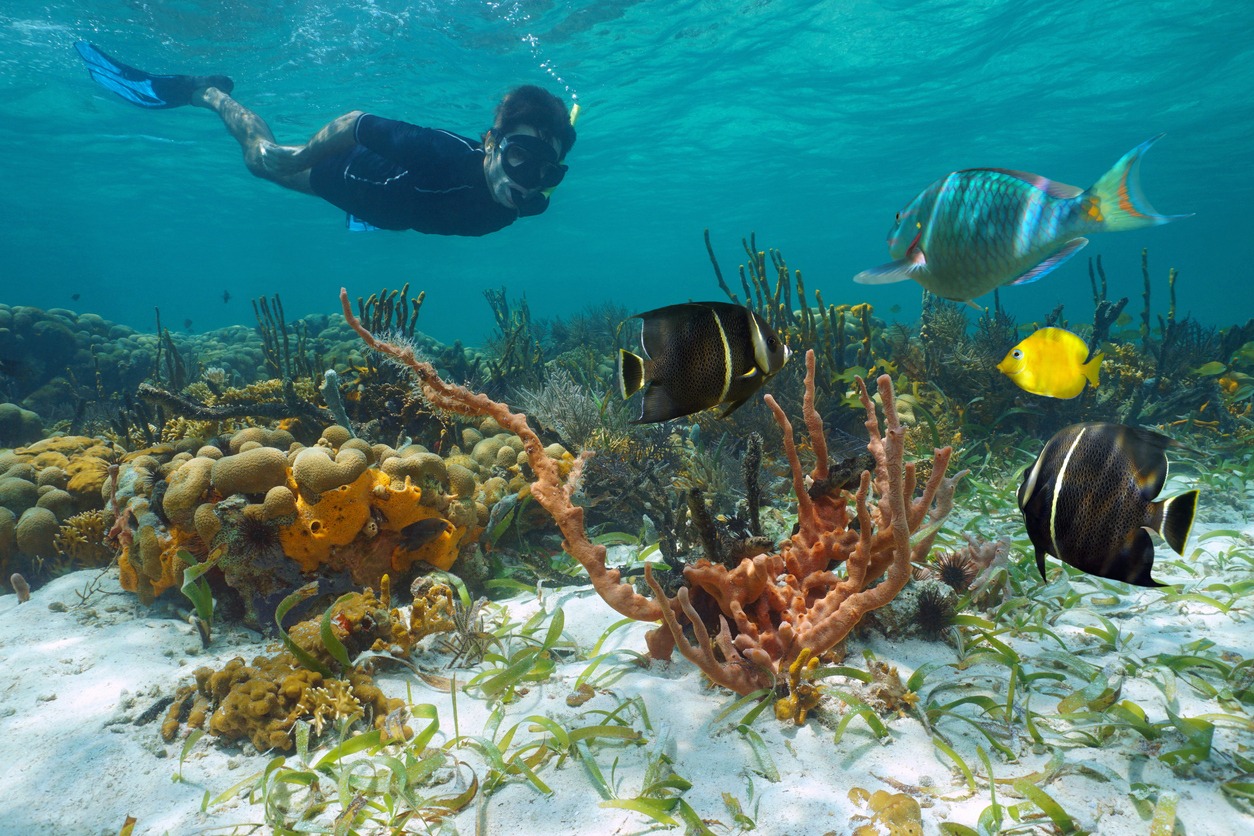
Safety should be your top priority when snorkeling. This water activity that involves exploring underwater environments requires proper precautions to guarantee a safe and enjoyable experience. Before entering the water, always check the weather forecast and water conditions. Avoid areas with strong currents or poor visibility, as these can quickly turn your quest into a dangerous situation.
If you're a first-time snorkeler, start in calm, shallow waters and practice using your equipment. Familiarize yourself with the snorkel's purge valves and learn proper breathing techniques. It's essential to know how to clear water from your snorkel to maintain comfort and safety.
Never snorkel alone. Always bring a buddy to watch out for each other and observe marine life from a safe distance. Wearing a snorkel vest can provide extra buoyancy and confidence, especially for beginners.
Confirm your gear has a good fit before venturing into open water. Proper-fitting equipment prevents leaks and discomfort, allowing you to focus on enjoying the underwater scenery. By following these water safety guidelines and techniques, you'll set yourself up for a memorable and secure snorkeling experience.
Choosing Beginner-Friendly Locations
Selecting the right location is essential for novice snorkelers. As a beginner, you'll want to opt for calm, shallow water areas that provide a good place to practice your skills. Look for spots with easy water access and gentle ocean conditions. These areas are often the best places to get the hang of breathing through your snorkel and using your fins effectively.
Research recommended beginner-friendly snorkeling spots in the Kaanapali area before your trip. Avoid deep or turbulent waters, as they can be challenging and potentially dangerous for inexperienced snorkelers. Instead, focus on locations with clear visibility and minimal currents. Consider the weather and water conditions on the day of your snorkeling excursion, as they can significantly impact your experience.
When choosing a location, prioritize safety by selecting areas near lifeguards or other swimmers. This added security can provide peace of mind as you investigate the underwater realm. Remember to observe marine life from a distance to avoid disturbing their natural habitat. By following these guidelines and selecting an appropriate location, you'll set yourself up for a successful and enjoyable first-time snorkeling experience.
Practice Makes Perfect
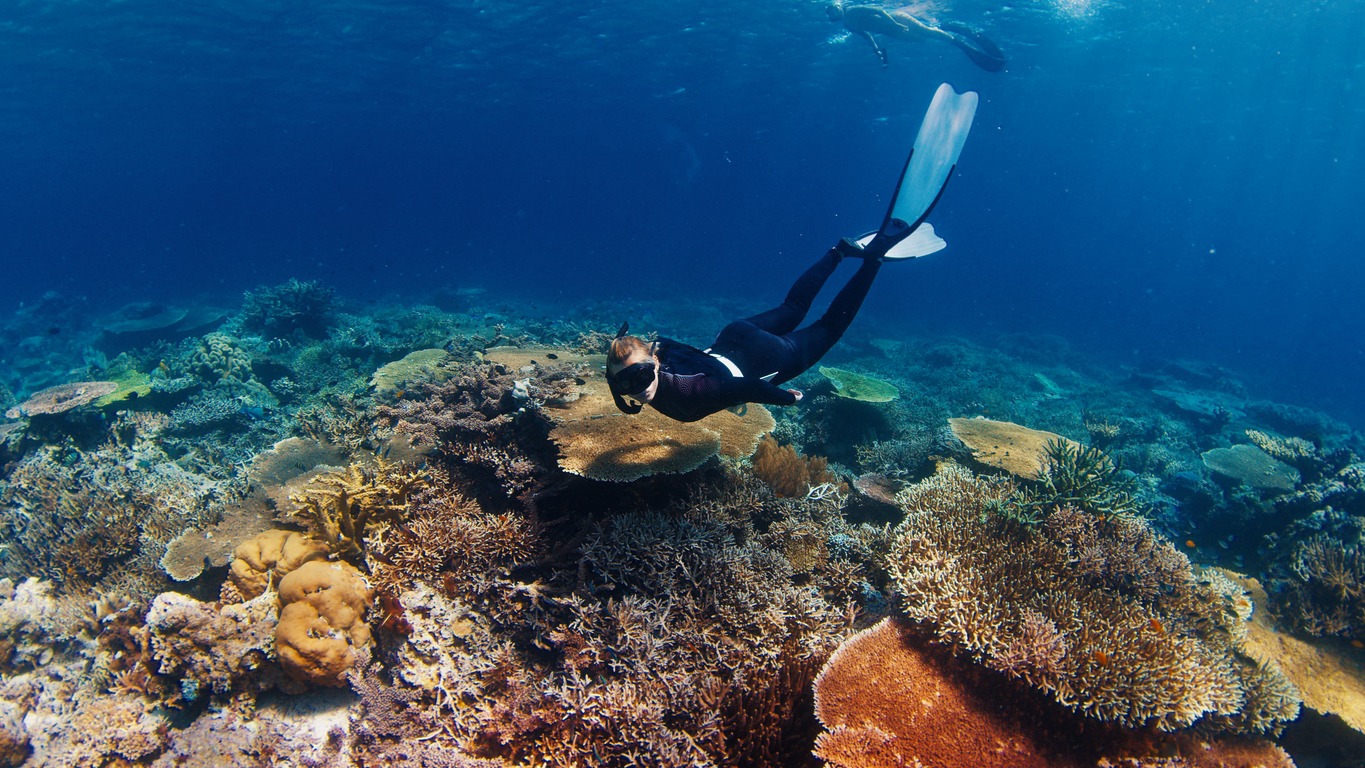
After choosing an ideal location, your next step is to hone your snorkeling skills. It's a good idea to practice in a controlled environment like a swimming pool before venturing into open water. This allows you to feel comfortable with the equipment and techniques, making your snorkeling experience more enjoyable and safe.
Start by familiarizing yourself with the basic equipment:
- Mask: Practice clearing water from it and ensuring a proper seal.
- Snorkel: Learn to breathe through it while your face is in the water.
- Fins: Practice efficient kicking techniques.
- Dry snorkel: If using one, learn how it allows you to breathe without using your hands to clear water.
Gradually increase the duration and depth of your practice sessions. Focus on perfecting your breathing technique and getting used to the sensation of floating face-down in the water. As you become more confident, try snorkeling in slightly deeper areas of the pool.
Guided Tours vs. Solo Snorkeling
Adventurous snorkelers face a choice when planning their underwater excursions: guided tours or solo exploration. As a beginner, guided tours offer numerous benefits. They provide expert instruction, safety measures, and access to the best snorkeling spots. You'll learn proper techniques and gain confidence in open water. Guides can also share local knowledge about marine life and ecosystems.
However, snorkeling alone has its perks. You'll have more freedom to investigate at your own pace and spend time observing specific areas that interest you. Solo snorkeling can be more peaceful and intimate, allowing for a personal underwater adventure.
When choosing the right option, consider your experience level and the location. If you're new to snorkeling or visiting an unfamiliar area with strong currents, a guided tour is safer. For solo trips, guarantee you're comfortable with your skills and equipment. Always use a snorkel vest and inform someone of your plans.
Things to keep in mind for both options: check weather conditions, research local regulations, and respect marine life. Whether guided or solo, prioritize safety and enjoyment in your snorkeling quests.

